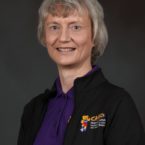Abstract
Background
Children with complex heart problems may be at higher risk for sedentary lifestyle morbidities than their healthy peers. This project examined perceptions, barriers, and supports that influence healthy active lifestyles among children with complex heart problems and their caregivers, to enable effective health and quality-of-life interventions.
Methods
Inductive thematic analysis was conducted of semi-structured guided discussions from 6 focus groups (young child [n = 2]; older child [n = 4]; parents of young child [n = 4]; parents of older child [n = 4]; pediatric cardiologist [n = 5]; pediatric cardiac nurse [n = 5]) and individual interviews with 7 parents, 5 parent/child dyads, 2 adults with complex heart problems, 6 pediatric cardiologists, 3 pediatric cardiac nurses, 4 pediatric cardiology mental health professionals, and 14 recreation professionals.
Results
Four interrelated themes were identified: (i) “It takes a village”—coordinated and collaborative interdisciplinary support; (ii) clear healthy lifestyle communication among children, families, and professionals is critically important; (iii) Ccreating supportive environments by building professional expertise; (iv) inspiring healthy lifestyles in the children’s own environments. All groups identified a need to improve knowledge about childhood heart conditions among education and recreation professionals and to encourage effective communication between healthcare professionals and families. Participants indicated that these changes would support families, educators, and recreation professionals in engaging children with heart problems in healthy lifestyles in home, school, and community settings.
Conclusions
Important healthy lifestyle barriers were identified within individuals and in their interactions. There is a profound need to enhance knowledge of childhood heart conditions and improve interactions among key stakeholders—children and families, educators, and recreation and healthcare professionals.
Researchers
-
Patricia Longmuir
Senior Scientist, CHEO Research Institute

